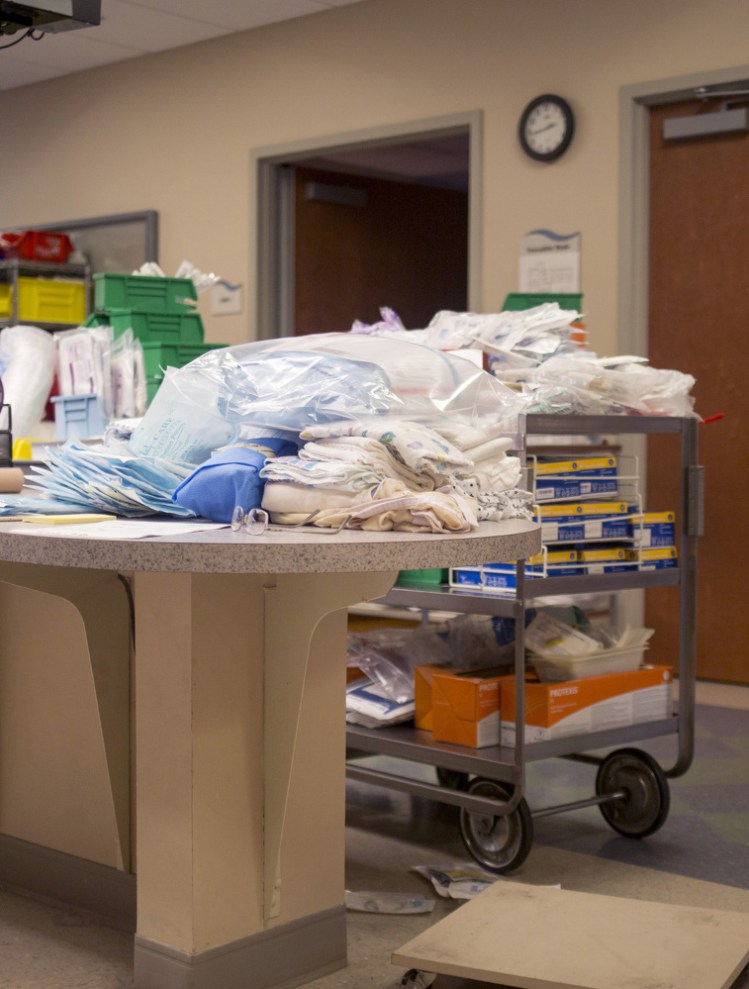Health care for nearly 700,000 rural Mainers faces an uncertain future. Rural hospital closures have gained considerable attention in Maine and elsewhere, but the problem is in fact, much larger. These hospital closures put access to emergency care, primary care, public health, long-term care and other support services at risk.
Rural Mainers depend on their community hospital as a vital source of care. Maine’s 22 rural community hospitals form the cornerstone for the area’s health care services with local primary care practices, health clinics and nursing homes depending on the local hospital’s structural and financial foundation. As the single largest source of employment in rural counties, health care is also vital to the increasingly fragile rural economy in Maine.
Data from the University of North Carolina-Chapel Hill indicate that the financial condition of many small, rural hospitals in Maine has deteriorated since 2011, with seven of the state’s 16 critical access hospitals having negative financial margins in 2015.
This August, we learned that health services in Jackman were threatened with the closure of the town’s nursing home and changes in the local emergency medical services. Also, this past summer, Calais Regional Hospital found itself unable to support its obstetrical services. This situation reflects a common pattern: Rural hospitals cannot provide a broad range of basic services because there are too few patients to cover the high fixed costs of those services. In response, hospitals eliminate services and reduce staff, but the financial problem only accelerates as patients begin to lose faith in their local hospital and choose to seek care elsewhere.
Faced with losing their local hospital, communities often mobilize to raise money or protest in an attempt to try to save their hospital. Rarely are the roots of the problem examined or discussed in a community forum where people can come together to understand the challenge. For example, the hospital’s financial problems are exacerbated when local residents choose not to use their local hospital.
Yet this behavior is rarely acknowledged or examined. Nor is the growing burden of chronic disease in rural communities closely reviewed, and the question asked: “What would turn this around?” And alternatives, such as building a regional service network with other hospitals with broader telehealth access to services, often become the focus of contentious negotiations among health care providers.
Hospitals and communities confront many challenges in the face of these potential closures. Ideally, communities and hospitals would have access to support and potentially financial assistance to develop a plan for transitioning to a new, rural health care future. To that end, we offer the following suggestions.
• First, Maine’s Office of Rural Health and Primary Care, in collaboration with hospitals and other health care stakeholders, should examine the current financial circumstances of Maine rural hospitals and health care providers to identify those facilities at highest risk.
• Second, communities and hospitals and their federal and state government partners need to consider alternative models for organizing hospital, emergency care and other services in the rural context. Freestanding emergency departments with the ability to deliver overnight observation and/or the development of regional delivery models, together with new payment models, are among the options being considered in several states.
• Third, rural communities, including health care providers, payers and employers, must acknowledge that both time and financial resources are needed to develop realistic plans for transitioning to a re-configured health system.
• Finally, Maine needs a point person and/or agency in state government tasked with the responsibility (and appropriately resourced) to work with the private sector and communities to mobilize the support and assistance needed to respond to short-term crises and implement longer-term plans.
The closure of OB services in Blue Hill in 2009, Lincoln in 2014 and Calais in 2017 are canaries in the coal mine. Let’s heed the warning immediately and start working with financially vulnerable rural hospitals, other providers, employers and communities to craft plans that ensure access to essential services in Maine’s rural communities.
Send questions/comments to the editors.


